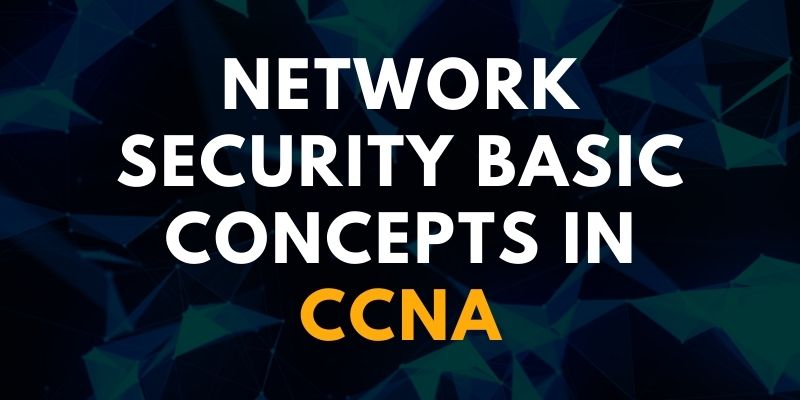Network Security Basic Concepts in CCNA

For computer network specialists, Cisco Systems offers the CCNA certification. System administrators, network support developers, and network specialists are all interested in learning more about networking. The CCNA test covers several networking principles including CCNA fundamentals. It enables applicants to read CCNA fundamentals and be prepared to deal with the latest network technology. If you are here to know the Network Security Basic Concepts in CCNA you can fetch into CCNA Course in Chennai. Well-experienced instructors at FITA Academy conduct unique test series for students to gain excellent scores.
What is Network Security?
Network security is critical for preventing unauthorized access, destruction, and crashes to native devices connected and customers. The Internet is an important source of security risks. We manage the system to keep it safe from these threats. Network security can be defined as the security of computers connected to our Web from virus attacks.
Network Security Methods
Many tools are available to safeguard your network against cyber threats. To make the best use of these devices, you must understand the fundamentals of network security. On a port-by-port basis, we can block inbound traffic.
We can use the firewall to prevent traffic from undesirable ports. On our own network, we may let you submit any form of service request. Similarly, the device and its procedures can be utilized for several sorts of network security. Some common security methods are listed below.
Control over our network devices
Network devices could be obtained from both within and without the network. Hackers can change or destroy the configurations of our network devices. Configure networking device access control with utmost caution. FITA Academy offers a CCNA Course Online that will help you build a solid foundation in app development.
The access port can be changed from the outside. Hacker attacks outside the system are unnecessary; they can also attack from within the network. The network administrator’s primary responsibility should be to save the access panel of network components.
Routers can use IP routing protocols to establish a shared table that links end destinations to the next-hop address.
Network security firewall
Network managers most commonly employ a firewall to keep their networks secure. There are two different types of networks: hardware and software firewalls. On a computer or server, a software firewall can be installed.
The firewall by default blocks all incoming traffic. The firewall must be configured as required for the services by the network administrator. Some networks provide Internet mail service, while others offer Internet services. Firewalls can be set up in this manner.
Network application security
Generally, the system includes utility services like internet access and mail delivery. On a specified network port, each application service executes. The attacker attempts to gain network access through these web servers. These ports must be kept secure. Attackers try to find vulnerabilities in the application to change or destroy it. CCNA Course In Bangalore offers placement Assistance with the course completion certification.
Leave a Reply